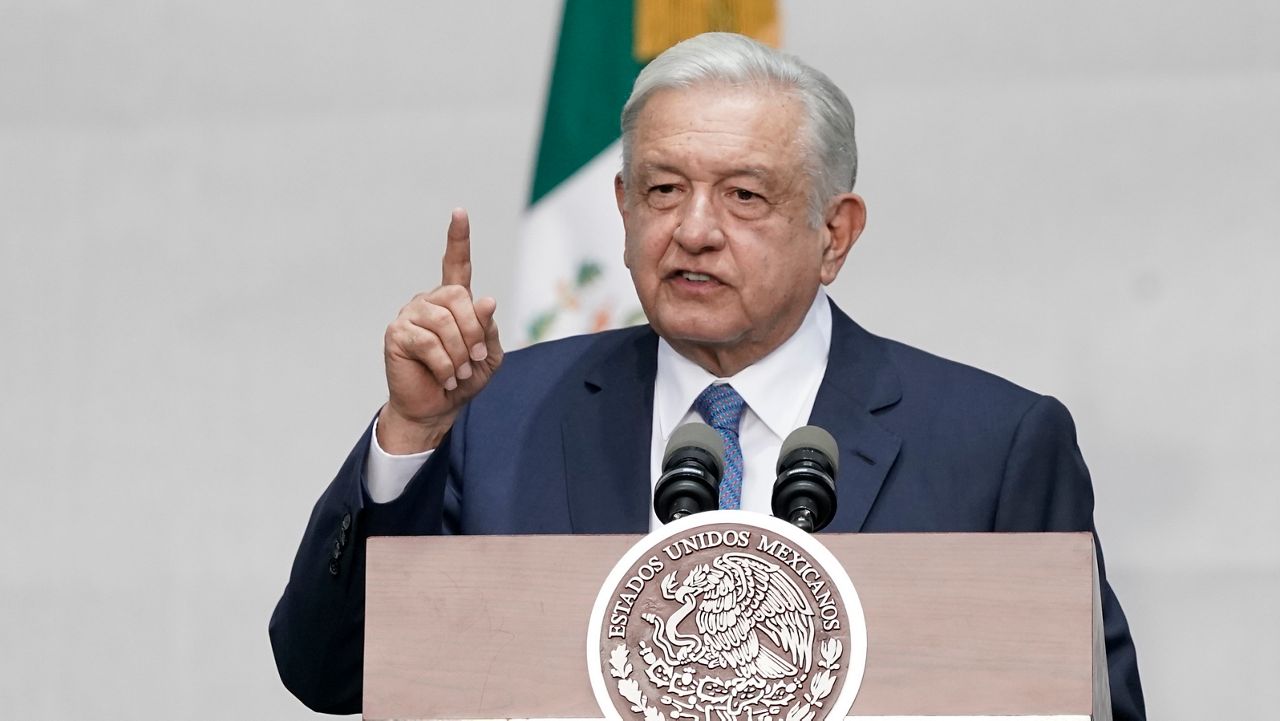MEXICO — Mexican President Andrés Manuel López Obrador on Thursday condemned the buoys Texas placed in the Rio Grande near Eagle Pass as “inhumane.”
His comments came after Mexico recovered two bodies from the river that separates the countries, one of which was located near a buoy.
“No one should be treated like this. That kind of treatment does not come from a good person; only by being good can we be happy. Abbott shouldn’t act like that; it’s inhumane,” López Obrador said during a press briefing on Thursday.
Mexican authorities said Thursday that a Honduran migrant identified one of the two bodies recovered from the Rio Grande as her son.
But the 20-year-old Honduran man was not the body found near a floating barrier that Texas Gov. Greg Abbott had installed in the river.
There is still no word on the identity of the second person whose body was found in the river near the buoys. The department said no identification had been found on the body, and nobody had come forward to report the victim.
Texas leaders said the barrier likely did not contribute to the second migrant’s death.
“Preliminary information suggests this individual drowned upstream from the marine barrier and floated into the buoys,” said Texas Department of Public Safety Director Steve McCraw. “There are personnel posted at the marine barrier at all times in case any migrants try to cross.”
The Department of Justice is suing Texas over the buoys, claiming the state installed the barrier without authorization from the U.S. Army Corps of Engineers.
“Because Texas installed the Floating Barrier without seeking the Corps’ authorization, the Corps and other relevant federal agencies were deprived of the opportunity to evaluate risks the barrier poses to public safety and the environment, mitigate those risks as necessary through the permitting process, and otherwise evaluate whether the project is in the public interest,” the complaint reads.
Abbott has dismissed the accusation, stating that Texas’ sovereign right to protect its border supersedes any such statutes.
Mexico’s top diplomat in July said her country sent a diplomatic note to the U.S. government expressing concern that Texas’ deployment of floating barriers on the Rio Grande may violate 1944 and 1970 treaties on boundaries and water.
Texas began rolling out the new floating barrier on the Rio Grande in early July. It is part of Abbott’s multibillion-dollar effort to secure the U.S. border with Mexico, which already has included busing migrants to liberal states and authorizing the National Guard to make arrests.



